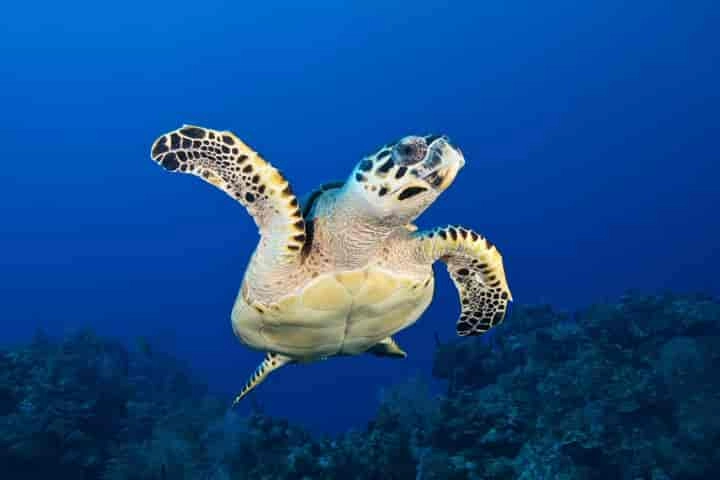When marine creatures like sea turtles travel great distances in the oceans to their breeding grounds without any aid for navigation, it has fascinated scientists. A report in sciencealert.com states that a new study has revealed that this ability in turtles is due to its built-in geomagnetic steering and also plenty of luck and tenacity.
For this study 22 hawksbill turtles or Eretmochelys imbricata were fitted with GPS trackers to chart their routes they would adhere, to reach their foraging regions following mating and breeding. It was indeed surprising to know that the routes taken were circuitous.
For instance, one creature swam 1,306 kilometres to reach an island which was merely 176 km from where it started. Basically, the travelling entailed plenty of swimming before they reached the dry land.
In their paper, the scientists wrote: "Our results provide compelling evidence that hawksbill turtles only have a relatively crude map sense in the open ocean. The existence of widespread foraging and breeding areas on isolated oceanic sites points to target searching in the final stages of migration being common in sea turtles."
Scientists have known that sea turtles travel great distances across the ocean to reach a remote or isolated island and they wondered how creatures locate these places?
Studies done earlier showed that the turtles have some idea of the planet’s magnetic field which guided in planning the route but it wasn’t known how exact this mapping was.
The turtles are not the only beings using the magnetic field’s direction and strength to travel but for them it helps to a limited extent. Talking to the Guardian, Graeme Hays, a marine ecologist from Australia’s Deakin University said: “It doesn't allow pinpoint straight-line migration, but it does tell them when they're getting a long way off route.”
Altering of the course is there when the animals are in open and shallow water.
The study also pointed out that neither the ocean currents nor the local weather conditions had any bearing on the travel of the turtles.
The navigation skills of the turtles stand out when compared to that of the sea birds who reach their destinations faster and may be using smells in the wind to do so. This does not seem to work for the sea turtles.
Summing up their study, the researchers said: "Our findings suggest that sea turtle navigational abilities are far from perfect, but rather may simply be as good as possible within the constraints of their sensory ability.”
Details of the study were published in the Journal of the Royal Society Interface.




















